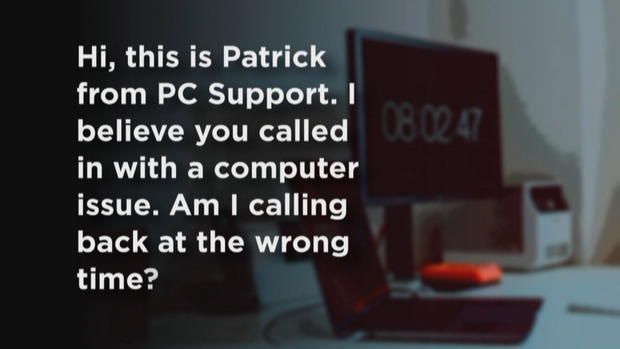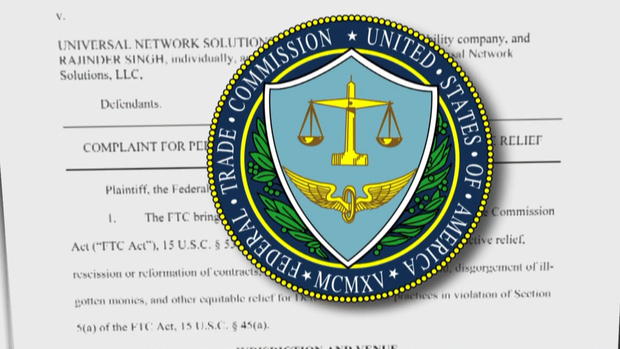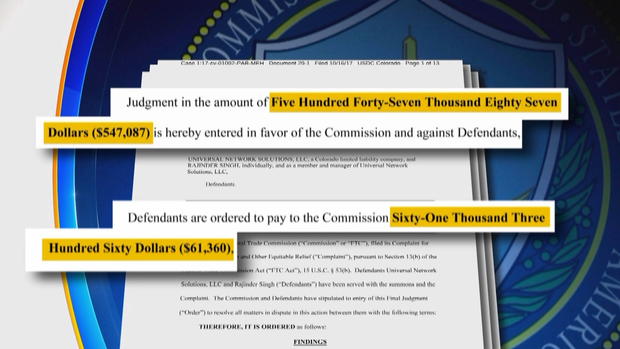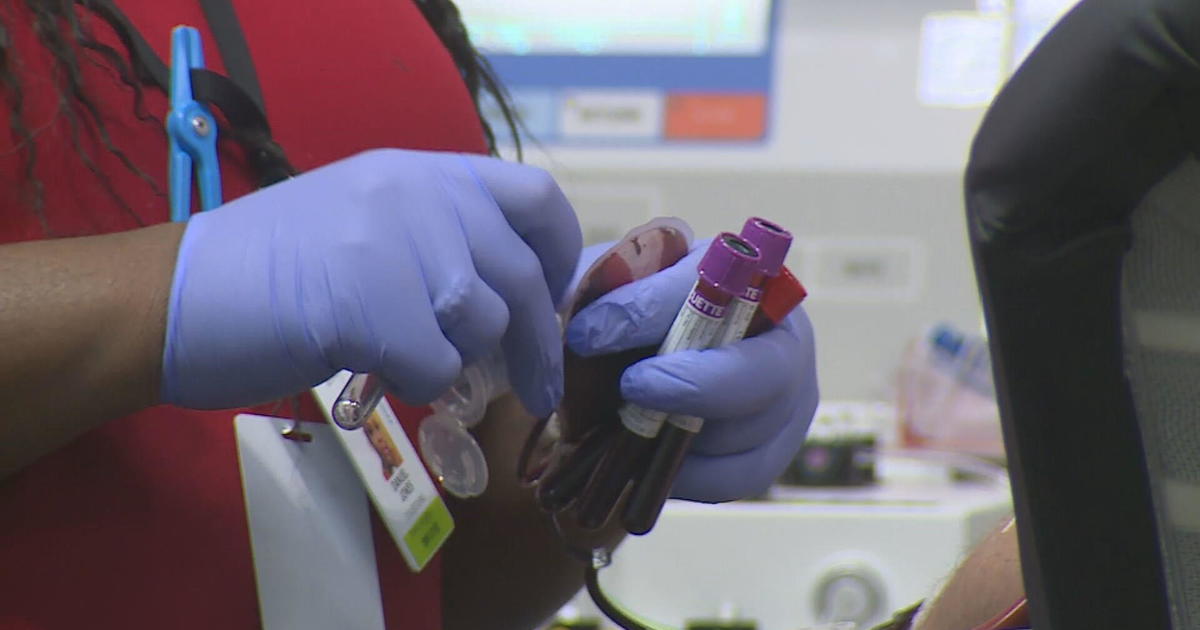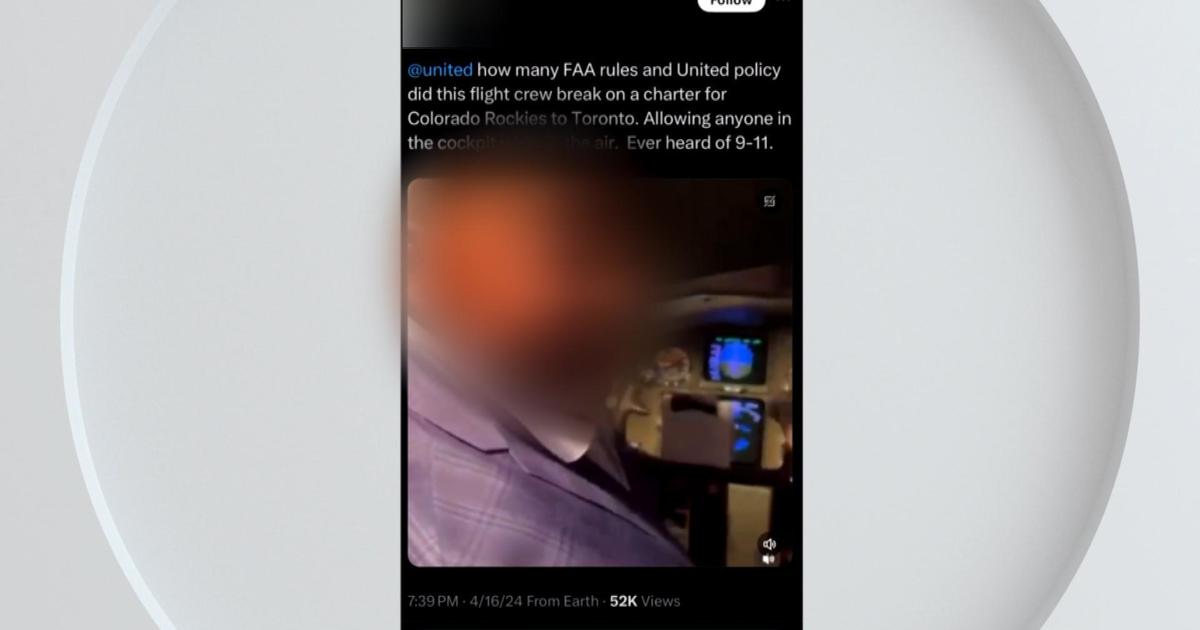Feds Shut Down Accused Tech Support Scammer
By Brian Maass
DENVER (CBS4)- The Federal Trade Commission has reached a tentative agreement with a Green Valley Ranch man which calls for him to stop pushing a so called 'tech support scam' and agree to a judgment against him in the amount of $547,087.
According to federal documents, Rajinder Singh and his company Universal Network Solutions, were part of an effort to convince computer users their computers were infected with viruses and they needed to pay money to regain control of their computers.
"Tech support scams prey on consumers' legitimate concerns about malware, viruses and other cyber threats," said Tom Pahl, acting director of the FTC's Bureau of Consumer Protection.
Singh and his attorney did not respond to calls, emails or personal visits from CBS4.
The government says in the vast majority of these cases, tech support scams are run from India, making the Singh case unusual given his Denver address. The federal agency said tech support scammers typically cause consumers computers to display ads to resemble pop- up security alerts from Microsoft, Apple or other tech companies. The ads warn consumers their computers are infected or compromised. Computer users are then urged to call a number for assistance, where workers then gain access to their computers.
According to the FTC, through high pressure tactics, the salesmen then persuade consumers to pay hundreds of dollars for unnecessary computer repair services, service plans and other products and services.
Singh was ensnared last spring in what was called "Operation Tech Trap," which saw the government take enforcement actions against 16 suspected tech support scams.
In the original complaint against Singh, the FTC accused him of making misrepresentations to consumers about errors, viruses, hackers and spyware/malware on personal computers.
Through the spring and summer, CBS4 attempted to talk to Rajinder Singh on numerous occasions. On one of several trips to his home, a man who identified himself as Singh's father answered the door and said his son lived at the home, but he did not know what his son did for work, did not know how to reach his son and did not know his son's cellphone number.
"I don't know nothing," said Divinder Singh. "I don't know where he works, I don't know his number."
A proposed permanent injunction would ban Singh from ever engaging in tech support and he would have to pay the FTC $61, 360.
While his attorney, Rachel Hirsch, did not respond to inquiries from CBS4, in a court hearing in July she said, "We are admitting that there was an Indian companies… that was in charge of the actions that are alleged in the complaint. So Mr. Singh's role was not limited—it was very limited."
Hirsch went on to say that Singh created his company for the purpose of helping an Indian company with merchant processing.
"That was his limited role. What they did with customers and how they interacted and any representations they may have made all came from the Indian company. His role was simply limited to being kind of, for lack of a better word, a frontman in the U.S."
The FTC offers the following advice to consumers to avoid falling for a tech support scam:
- If you get an unexpected or urgent call from someone who claims to be tech support, hang up. Its not a real caller.
- If you get a pop up message that tells you to call tech support, ignore it. Do not call a number that pops up on your screen in a warning about a computer problem.
- If you are concerned about your computer , call your security software company directly- but do not use the phone number in the pop- up or on caller ID. Look for the company's contact information online or on a software package or your receipt.
- Never share passwords or give control of your computer to anyone who contacts you.
- Get rid of malware
- Change any passwords that you shared with someone. Change the passwords on every account that uses passwords you shared.
- If you paid for bogus services with a credit card , call your credit card company and ask to reverse the charges.
CBS4 Investigator Brian Maass has been with the station more than 30 years uncovering waste, fraud and corruption. Follow him on Twitter @Briancbs4.


